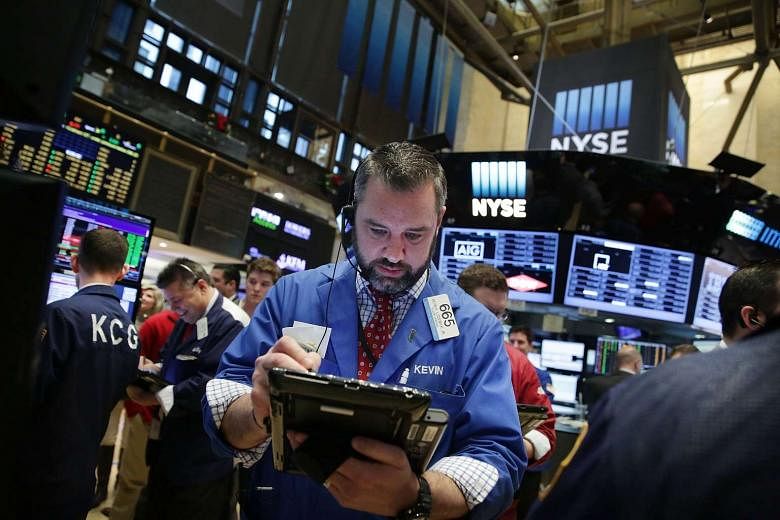WASHINGTON (AFP) - Global markets surged and the US dollar edged higher early Wednesday ahead of what is expected to be the Federal Reserve's first interest rate increase since 2006.
The Fed resumed meeting on the rate hike for a second day on Wednesday morning, with a decision to be announced at 2 pm (3 am Singapore time).
After a long runup pointing to this week for the move, there were few doubts that the policy-setting Federal Open Market Committee would raise its benchmark federal funds rate, which it has locked near zero since the end of 2008 to help pull the US economy back from deep recession.
In a step that will symbolize the end of the crisis era, the FOMC is expected to raise the rate by a quarter point to 0.25-0.50 per cent, as the first step in "normalising" its monetary stance after years of a cheap-dollar policy.
It will kick off a slow series of rate hikes that will come over the next two years if the economy continues to show an ability to grow steadily.
That ultimately will mean raising the cost of borrowing for everyone from foreign governments and companies to home and car buyers, while also better rewarding savers on their bank accounts.
A Fed rate increase "is a positive sign for the US economy - to be welcomed, not feared," said Stuart Hoffman, chief economist at PNC Financial Services Group.
Well-warned ahead of time, global share markets surged Wednesday ahead of the rate decision, with Tokyo stocks up 2.6 per cent, the Euro Stoxx 50 blue-chip index adding 0.6 percent and Wall Street gaining about 0.5 per cent.
The dollar meanwhile was slightly stronger at US$1.0928 to the euro and 121.86 yen.
Markets have had ample time to prepare for the move. Fed Chair Janet Yellen indicated her strong backing for it on December 2 when she said that the Fed expects the economy will continue to grow steadily through 2016 and that the challenges of low inflation and jobs market slack will diminish next year.
Moreover, she added, if the Fed waits too long, "we would likely end up having to tighten policy relatively abruptly to keep the economy from significantly overshooting both of our goals".
Some economists, including some inside the Fed, have opposed the move, arguing that the economy remains vulnerable to slower growth elsewhere in the world, and that there is no compelling reason like signs of inflation that would justify the move now.
Economist Paul Krugman warned that a rate hike "could end the run of good economic news".
"And this would be much more serious than a modest uptick in inflation because it's not at all clear what the Fed could do to fix its mistake."
Historically, noted John Normand at JP Morgan Securities, "macroeconomic and market conditions have rarely looked so fragile ahead of the first Fed hike".
However, supporters like Hoffman point out that the first hike is hardly more than a "baby step" and that further increases, as Yellen is expected to stress, will depend on how the economy continues to perform.
"The Fed is not trying to slow down a fast-growing economy or dampen runaway inflation," said Sam Stovall, equity strategist at S&P Capital IQ. A hike would be "an attempt to recalibrate, not restrain".

